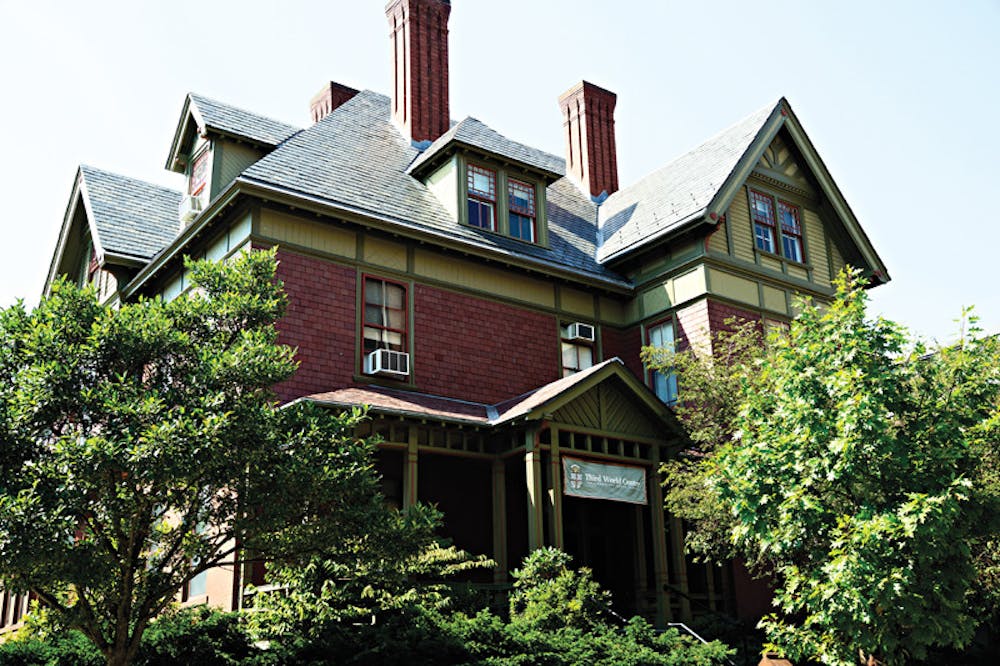With its 40th anniversary two years away, the Third World Center is doing some in-house cleaning, examining what changes it needs to make in order to be a useful resource in light of changing student needs and demographics.
A strategic planning committee comprising students, faculty members and alums is currently working on rewriting the TWC’s vision and mission and forming a five-year strategic plan, said Mary Grace Almandrez, TWC director and assistant dean of the College.
The committee is looking into issues of exclusivity and clarity of mission, among other goals, said Almandrez, a member of the committee. The committee will use these discussions, along with community input, to determine a new name for the center that better reflects its goals, she said.
Narrowing the center’s scope of involvement will be a guiding factor in clarifying its mission, Almandrez said.
“There’s a lot of work that we do in the center, and I think it’s good work. But I think this is an opportunity for us to determine if it’s appropriate for the TWC to be doing this work,” she said.
Stephanie Harris ’14, who is involved with the TWC’s Minority Peer Counselor program, said the center should determine whether it is primarily a community support group or primarily a social activism group.
“I think that social justice and activism are really awesome, but I don’t think that’s what the TWC has to be in its main focus. … For me, this is a space for people to come and feel comfortable,” she said.
The committee will also discuss what communities the center serves, answering questions such as who is considered a student of color and whether the TWC should also serve graduate students, said Hisa Hashisaka ’14, a member of the committee.
The group will work to determine what projects the TWC can undertake without overextending its staff members and resources, said Floripa Olguin ’16, another member of the committee.
Part of concentrating its focus will include building stronger connections with other departments and groups around campus. Some of these departments would include medical and science fields where people may not be aware of how they can get involved with the TWC, said Jacinta Lomba ’17, a member of the committee.
Increasing connections will ensure social justice is a “University-wide” effort, one of the goals of the committee, said member Christopher Dennis, deputy dean of the College.
“What I care most about is that the philosophy and our mission and our goal to support students of color and their allies … leaves this physical space,” Almandrez said. “It shouldn’t be just 68 Brown St.”
Stanley Stewart ’16, a minority peer counselor, said he believes the center’s mission and work are unclear to many students on campus. He added that he hopes the TWC can increase student and faculty understanding of the center’s goals without sacrificing its primary function — serving students of color.
Dialogues with students around campus have also suggested that many students see the TWC as an exclusive space, Lomba said.
“It seemed like a place for a few people, and not everyone felt comfortable stepping into the space and engaging in the issues,” Lomba said, adding that her own involvement with the center has been very gratifying.
“As a woman of color at a predominantly white institution, I think that the (Third World Transition Program) experience was important for me in knowing that I do have a space on this campus,” she said. She hopes the committee will work to make the space appear open to all students looking to use its resources, she added.
The committee hopes to post a draft of the TWC’s strategic plan within the next couple of weeks, after which it plans to host an open forum and call for suggestions regarding the center’s new name and mission, Almandrez said.
Amidst these changes, the TWC will not lose focus of its core values and history, she said. It will remain “unapologetically about students of color and their allies” and a “politicized space” where socially conscious conversations can occur, Almandrez said.
“I often call (the TWC) home. When people mess up rooms, I’m like, ‘Why are people messing up my house?’” Harris said. “It’s really important that it stays as a community support base.”
An earlier version of this article misidentified the Third World Center director and assistant dean of the College. Her name is Mary Grace Almandrez, not Mary Almandrez. The Herald regrets the error.

ADVERTISEMENT




